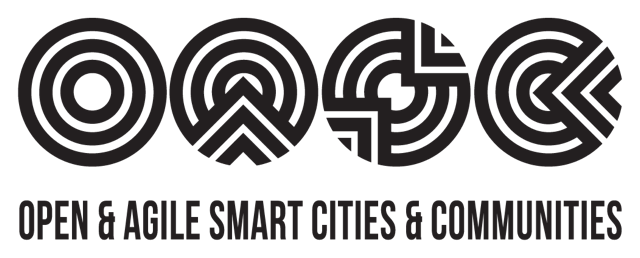The City of Athens is the latest city to join the Open and Agile Smart Cities network.
The capital of Greece, with more than 3 million inhabitants, is the third Greek city to join OASC, after Trikala and Katerini. Athens is known for being one of the world’s oldest cities, but now it is ready to embark on a new journey towards digital transformation. With Athens as our latest addition to the network, the total number of member cities is now 168.
Athens has already taken its first steps towards becoming a smart city by launching Project Athena that will use technology and innovation to overcome urban challenges, such as cleanliness and accessibility. To tackle these urban challenges, the city will place innovative sensors in strategic locations and use them to collect data on street and air cleanliness, accessibility for pedestrians and people with disabilities, noise pollution, temperature and humidity. Then the data collected by the sensors will be analysed to develop the operations provided by the municipality and to resolve issues the residents face.
The city of Athens is also developing a Digital Twin to combine all the city’s digital sources to make them easier to access, explore and experiment. A Digital Twin is a concept consisting of a continuously learning digital copy of real-world assets, systems and processes that can be queried for specific outcomes. Digital Twins utilise open data and data models from different sources within the city and integrate them with new technology capabilities including High Powered Computing (HPC), Artificial Intelligence (AI) and Advanced Analytics to provide a replica city environment where policy experimentation can safely take place.
The city of Athens sees that decision making based on data plays a key role in city and business transformation. The city’s goals in implementing the Digital Twin are: to (1) Understand city relationships and overcome engagement barriers with stakeholders; (2) Create new business value based on data-driven insights; (3) Co-create digital services with the active engagement and participation of citizens; (4) Generate decision making approach using common standards for greater interoperability of digital tools; (5) Improve effectiveness of policy design and implementation.
Open & Agile Smart Cities brings together 168 cities across 33 countries on four continents. The network is defining a set of 10 simple building blocks called MIMs (Minimal Interoperability Mechanisms), to help cities tackle the technical issues of developing an effective local data ecosystem. Minimum Interoperability is an approach to establishing a set of modular mechanisms across multiple application domains and geographic territories, without having to specify everything in complete detail, and without requiring complete implementation of the entire framework. It enables even small and medium-sized cities and communities and those with limited resources to use data to deliver greatly improved services to their citizens. All member cities subscribe to the OASC Minimal Interoperability Mechanisms, a set of open APIs, standards, and shared data models to allow cities to remain agile and digital solutions to scale across borders.
More information:
The Press Release of City of Athens

